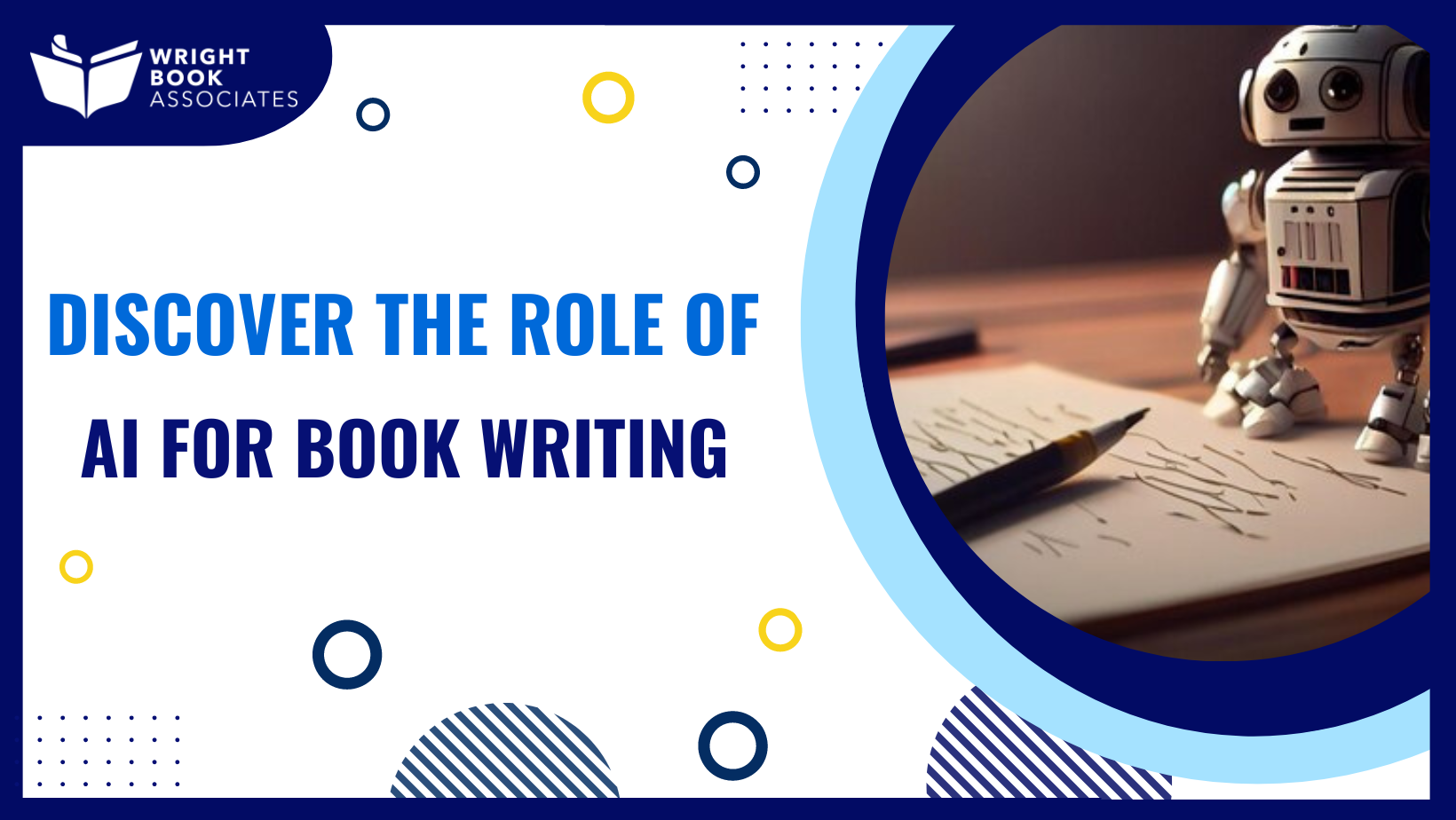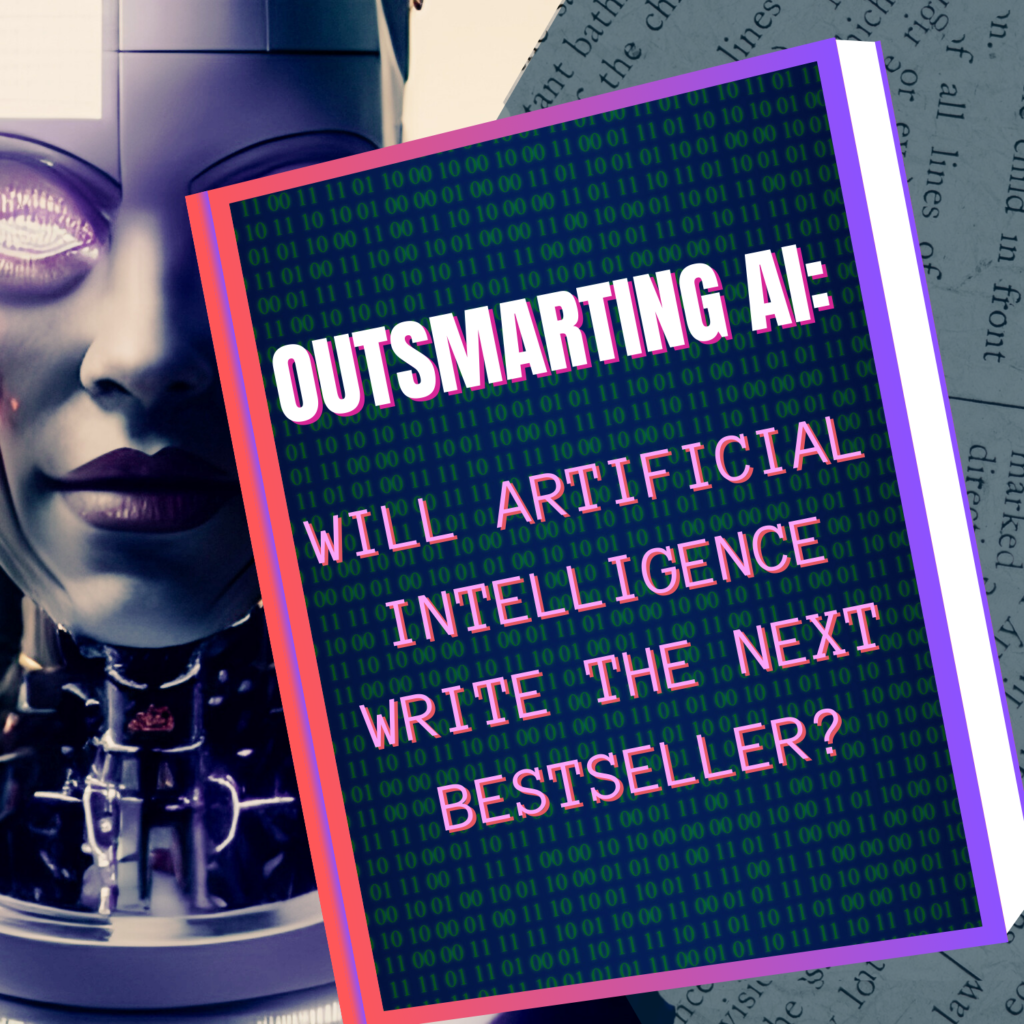The rise of artificial intelligence (AI) has sparked numerous debates, and one particularly intriguing question is whether AI will eventually write books. While current AI writing tools have demonstrated impressive capabilities, they are still far from replacing human authors entirely.
However, the potential of AI in book writing is undeniable, and its impact on the publishing industry is already being felt.
This exploration delves into the current state of AI writing technology, examining its limitations and strengths. We will explore the potential of AI in storytelling and plot development, analyze its ability to understand and mimic human emotion, and discuss the ethical considerations surrounding AI-generated literature.
Ultimately, we will examine the future of book writing, considering whether AI will collaborate with human authors or ultimately replace them.
Current Capabilities of AI in Writing
AI writing tools are rapidly evolving, showcasing impressive capabilities in generating various types of content. These tools utilize advanced natural language processing (NLP) and machine learning algorithms to analyze vast amounts of data and learn patterns in human language. They can then use this knowledge to produce text that mimics human writing styles.
Current State of AI Writing Tools and Their Limitations
AI writing tools are currently capable of generating different forms of content, including articles, blog posts, social media posts, product descriptions, and even poetry. These tools can be helpful for tasks such as summarizing information, creating Artikels, and generating initial drafts.
However, they still have limitations.
- Lack of Creativity and Originality:AI writing tools primarily rely on existing data to generate text. While they can mimic writing styles, they often struggle to produce truly original or creative content.
- Limited Understanding of Context:AI tools may struggle to understand the nuances of human language, including sarcasm, humor, and cultural references. This can lead to inaccurate or inappropriate content.
- Inability to Think Critically:AI tools lack the critical thinking and analytical skills that are essential for high-quality writing. They cannot evaluate information, form arguments, or develop original ideas.
Examples of AI-Generated Content and Analysis
Several AI writing tools are available, each with its strengths and weaknesses.
- GPT-3 (Generative Pre-trained Transformer 3):Developed by OpenAI, GPT-3 is a powerful language model known for its ability to generate human-like text. It can create realistic dialogue, write different types of creative content, and even translate languages. However, it can sometimes produce factually incorrect or biased information.
- Jasper:This AI writing tool focuses on marketing and sales copywriting. It can generate engaging product descriptions, website copy, and social media posts. While Jasper excels at creating persuasive language, it may struggle with more complex or nuanced writing tasks.
- Copy.ai:Copy.ai is another AI writing tool designed for marketing content. It offers various templates for different types of copy, such as website headlines, social media captions, and email subject lines. Its strength lies in its ease of use and ability to generate short, attention-grabbing text.
Role of Human Writers in Collaborating with AI Tools
While AI writing tools can be helpful, they should not be seen as replacements for human writers. Human writers bring critical thinking, creativity, and an understanding of context that AI tools currently lack.
- Fact-Checking and Editing:Human writers are essential for verifying the accuracy and reliability of AI-generated content. They can also edit and refine the text to ensure clarity, coherence, and style consistency.
- Adding Depth and Nuance:Human writers can add depth and nuance to AI-generated content by incorporating personal experiences, insights, and perspectives. They can also develop original ideas and arguments that AI tools cannot.
- Developing Creative Concepts:AI tools can provide initial drafts or ideas, but human writers are needed to develop creative concepts and craft compelling narratives. They can also use AI tools to explore different writing styles and experiment with language.
Potential of AI in Storytelling and Plot Development

The realm of storytelling has traditionally been considered a uniquely human endeavor, relying on creativity, imagination, and emotional intelligence. However, the advent of Artificial Intelligence (AI) has opened new possibilities, enabling machines to contribute to the creative process in ways previously unimaginable.
AI’s potential in storytelling and plot development is particularly intriguing, as it offers tools and techniques that can augment human creativity and push the boundaries of narrative innovation.AI can be used to generate plot ideas, character arcs, and dialogue by analyzing vast datasets of existing stories, identifying patterns, and using this information to create new and unique narratives.
AI algorithms can also be trained to understand the nuances of human emotion and interaction, enabling them to generate dialogue that feels natural and engaging.
AI-Powered Tools for Storytelling and Plot Development
Several AI-powered tools are emerging that can assist writers in brainstorming and world-building. These tools leverage machine learning algorithms to analyze data, identify patterns, and generate creative outputs.
- StoryAIis a tool that uses AI to generate plot ideas, character arcs, and dialogue. It allows users to input prompts and parameters, such as genre, setting, and character traits, and then generates a story Artikel based on these inputs.
This can be particularly helpful for writers who are struggling to come up with a starting point for their story or who want to explore different possibilities.
- Sudowriteis another AI-powered writing tool that can help writers with various aspects of the writing process, including brainstorming, character development, and dialogue generation. Sudowrite uses a deep learning model trained on a massive dataset of text and code, enabling it to understand the nuances of language and generate creative outputs that are both coherent and engaging.
- Plotteris a software application that helps writers plan and Artikel their stories. While not strictly an AI tool, Plotter incorporates features that leverage data analysis to help writers visualize their story’s structure, identify plot holes, and ensure consistency in their narrative.
This can be particularly helpful for writers who struggle with organization and structure.
Potential for AI to Create Unique and Compelling Narratives
AI’s ability to analyze vast datasets of stories and identify patterns allows it to generate unique and compelling narratives that might not be possible for human writers to conceive. This is because AI is not limited by human biases and preconceptions, and it can explore new and unexpected narrative possibilities.
“AI can help us to see the world in new ways, and to tell stories that we might not have thought possible.”
David Cope, composer and AI researcher
For example, AI could be used to create a story that explores a world where time is not linear or where the protagonist is a sentient artificial intelligence. These are concepts that might be difficult for human writers to imagine, but AI can use its ability to analyze data and identify patterns to create narratives that are both innovative and compelling.
AI’s Ability to Understand and Mimic Human Emotion

While AI has made significant strides in language processing, replicating human emotions remains a complex challenge. Emotions are deeply intertwined with personal experiences, cultural contexts, and physiological responses, making them difficult for AI to fully grasp and express authentically.
Challenges in Replicating Human Emotions
AI systems primarily rely on data analysis and pattern recognition. They can identify emotional cues in text, such as sentiment words and emotive language, but struggle to understand the underlying complexities of human feelings.
- Subjectivity and Context:Human emotions are subjective and influenced by individual experiences, cultural background, and social context. AI systems lack this personal history and struggle to interpret emotions in a nuanced way. For example, the word “sad” can have different meanings depending on the context and the person experiencing it.
- Nuance and Ambiguity:Emotions are often expressed through subtle cues, such as body language, tone of voice, and facial expressions. AI systems currently have limited ability to interpret these nuances and can easily misinterpret emotional signals.
- Dynamic Nature of Emotions:Emotions are fluid and change over time. They can be influenced by external events, internal states, and relationships. AI systems find it difficult to model this dynamic nature and adapt to changing emotional contexts.
Potential for AI to Learn and Adapt to Different Writing Styles and Genres
Despite the challenges, AI is showing promise in learning and adapting to different writing styles and genres.
- Machine Learning:AI systems can be trained on large datasets of text and code, enabling them to learn patterns and nuances of different writing styles. For example, AI can be trained on a corpus of Shakespearean plays to learn the language and structure of Elizabethan English.
- Generative Models:Generative models, such as GPT-3, are capable of generating human-like text in various styles. By feeding them different datasets, they can adapt to different writing genres, including fiction, poetry, and even technical writing.
- Style Transfer:AI techniques can be used to transfer the style of one text to another. For example, AI could be used to rewrite a news article in the style of a novel, or to create a poem in the style of a particular poet.
Ethical Implications of AI-Generated Content that Evokes Strong Emotions
The ability of AI to generate content that evokes strong emotions raises ethical concerns.
- Manipulation and Misinformation:AI-generated content could be used to manipulate public opinion or spread misinformation. For example, AI could be used to create fake news articles or social media posts that exploit people’s emotions.
- Emotional Distress:AI-generated content that evokes strong emotions could cause emotional distress to individuals, especially if it is used in harmful ways. For example, AI could be used to create realistic and emotionally disturbing deepfakes that target specific individuals.
- Blurred Lines of Authenticity:The ability of AI to mimic human emotions could blur the lines between human-generated and AI-generated content. This could raise questions about the authenticity and originality of creative works.
The Future of AI in Book Writing

The rapid advancements in artificial intelligence (AI) have sparked discussions about its potential impact on various industries, including the world of writing. While AI currently plays a supportive role in writing, its future capabilities raise questions about its potential to collaborate with or even replace human authors.
Human Writers and AI: A Collaborative Future
The future of book writing likely involves a synergistic relationship between human writers and AI. Human authors will continue to bring their creativity, emotional intelligence, and unique perspectives to the table, while AI can provide valuable assistance in various aspects of the writing process.
- Content Generation and Research:AI can analyze vast amounts of data and generate factual content, summaries, or even creative prompts, freeing up human writers to focus on crafting compelling narratives.
- Editing and Proofreading:AI-powered tools can identify grammatical errors, inconsistencies, and stylistic issues, enhancing the overall quality and clarity of written work.
- Personalized Writing:AI can tailor writing styles and content to specific audiences, ensuring better engagement and relevance.
- Translation and Localization:AI can facilitate the translation of books into multiple languages, expanding their reach to a global audience.
Hypothetical Scenario: Collaboration in Book Creation
Imagine a scenario where a human author collaborates with an AI to create a historical fiction novel. The author provides the core plot, character development, and emotional depth, while the AI assists in researching historical details, generating dialogue, and ensuring consistency in the narrative.
The author can then refine the AI’s output, adding their unique voice and vision to create a compelling and engaging story.
AI-Generated Books: A Potential Reality
While the prospect of AI creating books entirely on its own might seem far-fetched, advancements in AI technology suggest that it is not an entirely implausible scenario. AI algorithms are becoming increasingly sophisticated in understanding and mimicking human language, including complex emotions and storytelling techniques.
- AI-Generated Poetry and Short Stories:AI has already demonstrated its ability to create poems and short stories that exhibit creativity and emotional depth, albeit with varying degrees of success.
- AI-Driven Content Creation:Platforms like GPT-3 and LaMDA are capable of generating human-quality content, including articles, scripts, and even book-length narratives.
“The future of writing is not about replacing human writers, but about empowering them with new tools and technologies.”
Author and futurist, [Name]
The Impact of AI on the Publishing Industry

The advent of artificial intelligence (AI) has sparked a wave of innovation across various industries, and the publishing world is no exception. AI’s ability to generate text, analyze data, and even mimic human creativity has the potential to disrupt traditional publishing models and reshape the relationship between authors, publishers, and readers.
The Potential for AI to Disrupt Traditional Publishing Models
AI’s impact on the publishing industry is multifaceted. One of the most significant potential disruptions lies in the shift towards AI-generated content. This technology can automate tasks like writing book summaries, generating Artikels, and even creating entire books. This automation can reduce costs and lead to a more efficient workflow, potentially disrupting the traditional roles of authors and publishers.
Implications of AI-Generated Content for Authors, Publishers, and Readers
The rise of AI-generated content presents both opportunities and challenges for various stakeholders in the publishing industry.
Authors
AI can be a valuable tool for authors, providing assistance with tasks such as research, brainstorming, and editing. It can also help authors reach a wider audience by automating the process of creating and distributing their work. However, the potential for AI to generate content that mimics human creativity raises concerns about the future of authorship and the value of original work.
Publishers
Publishers can leverage AI to streamline their operations, automating tasks such as manuscript evaluation, cover design, and marketing. AI can also help publishers identify emerging trends and target specific audiences more effectively. However, publishers must also navigate the ethical and legal implications of using AI-generated content and ensure that their publications maintain quality and originality.
Readers
AI-generated content can offer readers access to a wider variety of books at lower costs. It can also personalize reading experiences by recommending books based on individual preferences. However, readers must be aware of the potential for AI-generated content to lack the depth and originality of human-written books.
Benefits and Challenges of AI in Book Publishing
| Benefits | Challenges |
|---|---|
| Increased efficiency and productivity | Concerns about originality and plagiarism |
| Reduced costs | Ethical and legal implications of AI-generated content |
| Improved targeting and personalization | Potential for job displacement in the publishing industry |
| Enhanced accessibility and affordability | Maintaining quality and originality in AI-generated content |
The Ethical Considerations of AI-Generated Literature

The rise of AI in writing raises significant ethical concerns, particularly regarding the potential for AI to perpetuate harmful stereotypes or biases and the implications for copyright and intellectual property. These concerns demand careful consideration and solutions to ensure the ethical and responsible use of AI in book writing.
The Potential for AI to Perpetuate Harmful Stereotypes or Biases
AI models are trained on vast amounts of data, which can reflect existing societal biases. If these biases are not addressed during training, AI-generated content may inadvertently perpetuate harmful stereotypes. For example, an AI model trained on a dataset of historical texts might generate characters that reinforce outdated gender roles or racial prejudices.
Closure

As AI continues to evolve, the landscape of book writing will undoubtedly change. The future may hold a world where AI and human authors collaborate seamlessly, each contributing their unique strengths to the creative process. Alternatively, AI may become capable of crafting entire books independently, potentially disrupting traditional publishing models.
Regardless of the path forward, the ethical implications of AI-generated literature must be carefully considered to ensure that technology serves humanity and promotes responsible creative expression.
FAQ Corner
What are some examples of AI-generated content?
AI can generate various forms of content, including articles, poems, scripts, and even music. Some popular AI writing tools include GPT-3, Jasper, and Copy.ai. These tools can generate text based on user prompts and can be used for tasks like writing marketing copy, generating social media posts, or creating drafts of creative content.
Can AI understand and replicate human emotions?
While AI can process and analyze language that expresses emotions, it currently lacks the ability to truly understand and experience emotions like humans do. AI can mimic emotional tones and create text that evokes emotional responses, but it does not possess genuine feelings or consciousness.
What are the potential benefits of AI in book publishing?
AI can potentially streamline the publishing process, reduce costs, and make books more accessible to wider audiences. AI-powered tools can assist with tasks like editing, proofreading, and even generating marketing materials. However, it is important to note that these benefits must be weighed against the potential challenges and ethical considerations.
